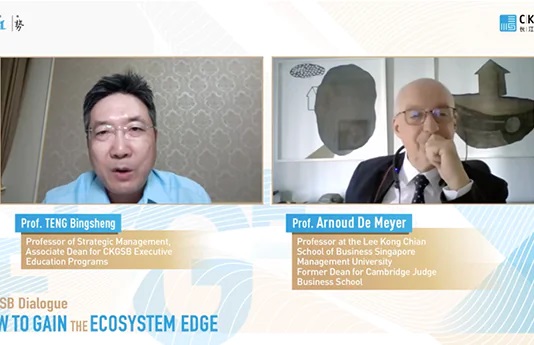I came across an interesting news development the other day that got me thinking. WISCO, a firm based in Wuhan China, recently announced that it would establish pig farms with an annual capacity of 10,000 head. This might not be surprising except that WISCO is an acronym for Wuhan Iron and Steel Corporation. This raises the question of what WISCO hopes to gain from such a wildly unrelated diversification move. Economists have collected significant evidence that diversification into unrelated businesses (at least in the U.S.) results in a “diversification discount” – a lower stock return for highly diversified firms.
Strategy researchers have explained the workings of the diversification discount by arguing that firms with a “competitive advantage” in their core business usually fail in taking on a new, unrelated business because their competitive advantage does not carry over. A competitive advantage is a unique capability (think of Apple’s ability to create great media electronics or Wal-Mart’s ability to run a logistics system) or industry position (think of Coke’s brand or Microsoft’s installed base of users) that allows it to earn higher profits than other firms in the industry. Since competitive advantages are usually confined to a single or small group of closely related industries, they generally do not transfer well to a distant industry – imagine Coke applying its brand power to industrial machinery or Apple applying its development skills to running restaurants. Still, some firms do try. Faced with declining demand for oil in the late 1970s and early 1980s, British Petroleum tried diversifying into animal feeds while Mobil tried its hand at running department stores by purchasing Montgomery Ward. By 1992 both had divested these operations in the face of pressures to increase profits.
Ironically, WISCO may have a competitive advantage that transfers from steel-making to pig-breeding. As a state-owned enterprise (SOE), WISCO enjoys advantages which private firms do not: particularly better connections to government agencies. These connections can convey benefits such as lower-cost financing and better access to customers, distribution channels, and suppliers. WISCO can use these advantages as easily in pig farming as in steel production which gives it an incentive to make such less-than-obvious diversification moves. For example, if private pig farmers do not enjoy below-market interest rates or access to the best pig slaughtering and processing firms WISCO has a competitive advantage.
The problem is that consumers will be made worse off by this. WISCO’s competitive advantage is bestowed by the government and it hasn’t been shaped by the capabilities one hones by surviving the rigors of market competition. As a result, WISCO’s advantage does not mean it will necessarily produce better or cheaper pork. If firms play on a level playing field, market competition will ensure that only those firms that have a true competitive advantage will survive over the long run. These advantages translate into better or lower-cost products or both. One of the rationales provided by WISCO for entering pig farming is that currently the price of steel is relatively low and the price of pork high. If such conditions persist, firms will exit steel production and enter pig farming. But this does not mean that WISCO should be the one to enter pig farming. Absent government interference, investors would place their bets on companies most likely to produce better or cheaper pork and these are likely to be those with experience in pig farming or closely related industries such as other animal husbandry.
WISCO’s move is a manifestation at the micro level of macro-level inefficiencies that economists worry about. By arbitrarily providing preferences to certain firms, governments distort the market by providing incentives for less-qualified firms to displace those more qualified. With WISCO planning to invest RMB 39 billion ($6.2 billion) this year in non-steel related industries – also including wine production and vegetable farming – there is reason to worry about such misallocation of resources.


















